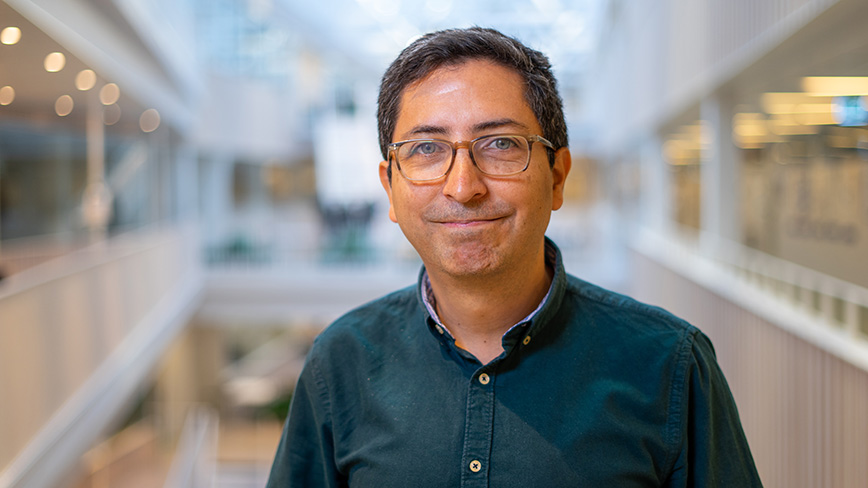20 million grant for KTH research on neurological diseases

Rodrigo Moreno and his research team have been awarded a 20 MSEK grant from MedTechLabs for research on advanced analysis of magnetic resonance elastography images (MRE). This involves new techniques to better understand neurological diseases such as Parkinson's, MS, Alzheimer's disease, and brain tumours.
“My main motivation at work is to make a real impact in improving people’s lives. In this project, we will have a unique opportunity to do it! I am excited to start this project and really look forward to working with a fantastic team,” says Rodrigo Moreno.
“Neurodegenerative disorders and brain tumours affect millions of persons worldwide. While MRI (magnetic resonance imaging) is a cornerstone in clinical diagnostics, it is largely limited to morphological features. Understanding how the mechanical properties of tissues change due to disease can give valuable information for improving their early detection and diagnosis. A promising tool for non-invasively estimating these mechanical properties through MRI is Magnetic Resonance Elastography (MRE),” says Rodrigo Moreno.
MRE scans provide better understanding of neurological diseases
MRE is already used in clinics to diagnose different diseases in the liver, but the complexity of the brain has hindered the clinical use of MRE in that organ. MRE for the brain is still in the research phase. Around a year ago, the KTH-owned MRI scanner became the only one in Sweden capable of performing MRE examinations in the brain.
“We currently use this new technique in different projects to better understand neurological disorders, including Parkinson’s disease, anxiety, Alzheimer’s disease, and brain tumours,” says Rodrigo Moreno.
Clinical studies the next step
The main goal of the project is to propose and translate the next generation of MRE methods for the brain into clinical studies. The project involves 14 researchers from KTH, Karolinska Institutet and Lund University.
“We will apply the new methods in four clinical studies targeting Parkinson’s disease, multiple sclerosis, Alzheimer’s disease patients, and patients with brain tumours. Different studies have reported that brain softening due to these neurological diseases happens even before you can see any morphological changes. Our goal is to go beyond and use a richer set of biomechanical parameters to improve the early diagnosis of these diseases”, says Rodrigo Moreno.
As for the clinical study of brain tumours, standard MRE can be used to decide the best surgical procedure for every specific patient. With the new methods, Rodrigo and his team expect to be able to extract more information so that the surgeon can determine the most appropriate procedure for challenging glioblastomas, which are one of the most aggressive cancers in the brain.
“My main motivation at work is to make a real impact in improving people’s lives. In this project, we will have a unique opportunity to do it! I am excited to start this project and really look forward to working with a fantastic team,” says Rodrigo Moreno.
Text: Åsa Karsberg

